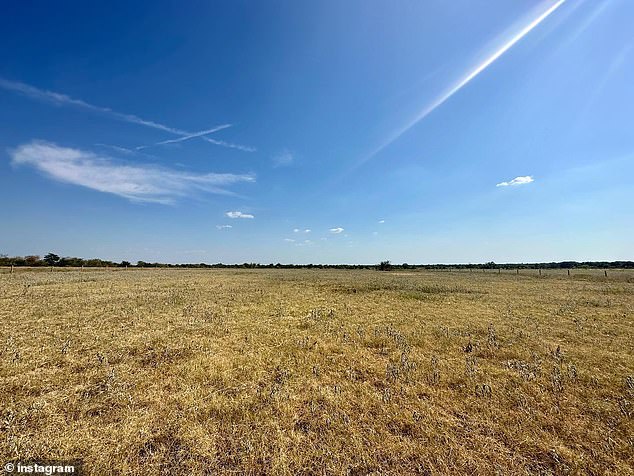Angry ranchers in a rural Texas town are fighting to stop a neighbor from using a fertilizer with an absolutely disgusting ingredient.
The owner of more than 200 acres of land in Canton, a city of 4,500 people in Van Zandt County, has applied for a permit from the Texas Commission on Environmental Quality (TCEQ) to dump biosolids throughout his property.
Biosolids, also called sewage sludge, are a fertilizer made from human waste from wastewater treatment plants.
Farmers have been using this type of fertilizer along with animal manure. Since the 1920sBut since then scientists have discovered biosolids. May contain poisonous substances called PFAS.also known as “forever chemicals”.
Exposure to sufficient amounts of forever chemicals (named for their ability to exist in the environment and in the human body without breaking down) can cause cancer in humans.
Farmland in Van Zandt County, Texas. The county is near the Dallas-Fort Worth area.
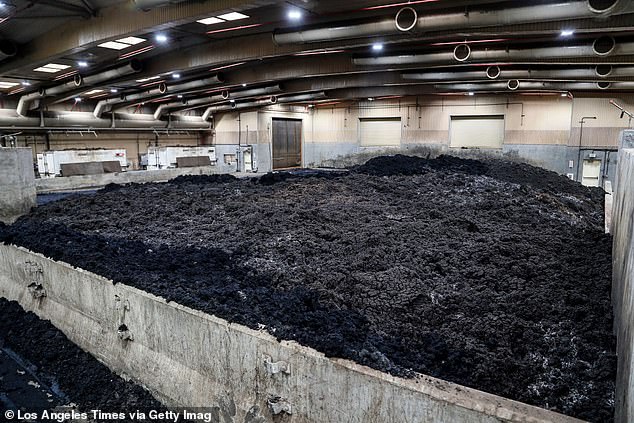
Pictured: Biosolids stored at a warehouse in Kettleman City, California, ready to be mixed with wood chips.
These harmful substances can also kill animals.
In Johnson County, 100 miles west of Canton, ranchers there said: WFAA that their livestock and fish are dying after a neighbor put biosolids on their property.
Armed with all this knowledge, angry citizens made their voices heard at a meeting on July 25, which was also attended by representatives from TCEQ and Denali Water Solutions, the company that makes the biosolid fertilizer.
“This chemical is toxic,” said Scott Tuley, an elected county commissioner in neighboring Henderson County.
“I stand with the ranchers, the farmers, the homeowners and the people in this room and ask them to deny this permit on the basis that all of the chemicals are toxic and not needed in rural Texas,” Tuley added.
Wendy Spivey, another Henderson County commissioner, was also present to voice her opposition to the biosolids permit.
“How would you feel if this happened in your backyard?” Spivey asked.
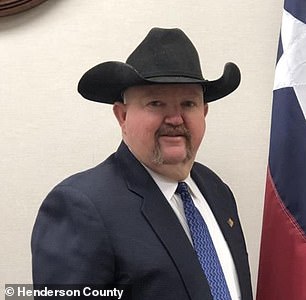
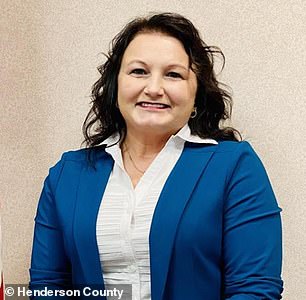
Scott Tuley, left, and Wendy Spivey, right, attended the July 25 meeting to voice their opposition to the biosolids permit. Both are county commissioners in neighboring Henderson County.
Representatives from TCEQ, the permitting agency, and Denali Water Solutions, the company that makes the biosolid fertilizer sold to the landowner, were also at the meeting to respond to public complaints.
Residents were not satisfied with his statements.
Ross Morgan, who was the TCEQ representative, said the landowner requesting the biosolids has complied with all obligations under the law.
This is despite the fact that TCEQ currently does not have the capability to test for the presence of permanent chemicals in the controversial fertilizer.
“The state needs to have a policy that can be applied to each of the permit holders on how to do that, but right now it’s not clear how best to craft that strategy,” Morgan said.
The citizens argued that since Maine has banned biosolids, the TCEQ should wait to award the permit until the EPA publishes its biosolids guidelines, expected later this year.
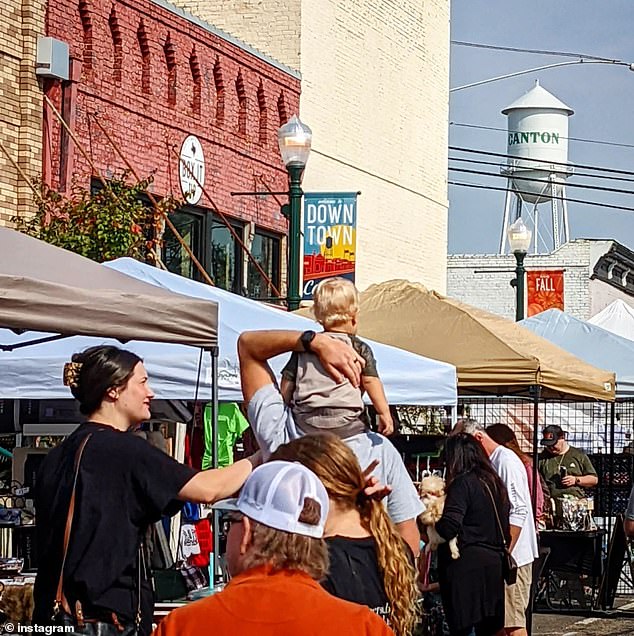
Canton is a city of about 4,500 people. Residents came to the town hall meeting to express their frustration at the possibility of a landowner using toxic fertilizers.
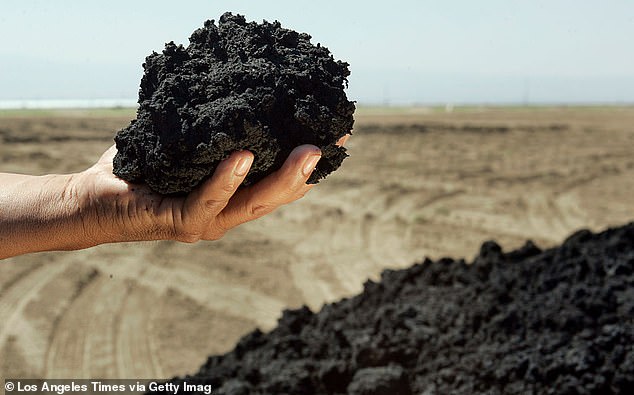
Biosolid fertilizer, pictured here, usually looks like regular fertilizer. It just happens to be made from human waste and PFAS, also known as forever chemicals.
“Just outside of town, less than 10 miles away, there’s a large underground aquifer where a lot of these people’s wells probably get their water from,” resident Chris Morris told Gabe Timby of Denali Water Solutions.
“You can’t guarantee that the aquifer won’t be poisoned by what you’re going to dump on the ground. And as a lifelong Texan, I find that appalling.”
Timby went into defensive mode, seeking to distance himself from the proceedings.
“Well, I can’t guarantee anything ever because I’m not the one making the requests. We have operations people who handle that. But it’s always our intention, with TCEQ oversight, to comply with the regulations,” Timby said.
Following massive protests from ranchers in neighboring counties, the landowner told WFAA he plans to withdraw the biosolids permit altogether.
While public pressure led to a victory for Canton residents, there are now more than 40 sites in Texas where companies like Denali have been allowed to sell biosolids to landowners.
(tags to translate)dailymail


